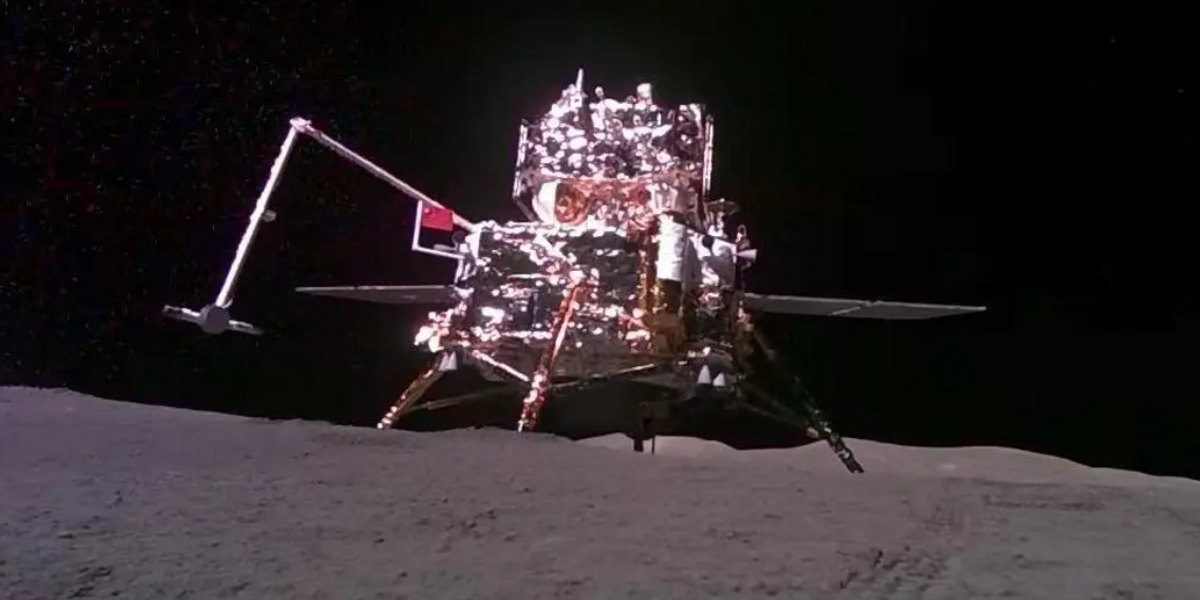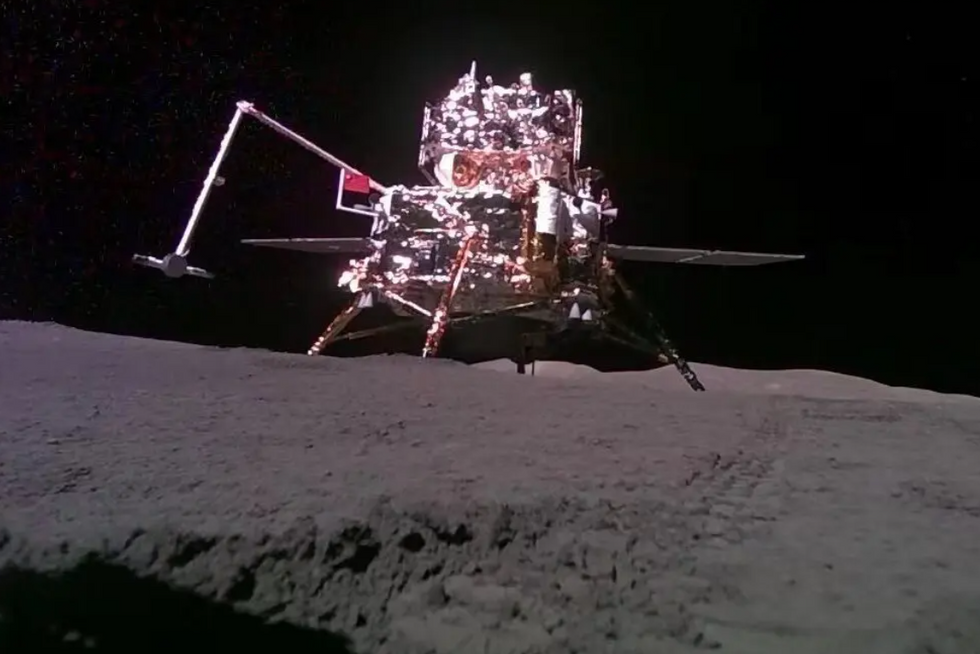



China’s lunar probe has returned to earth with the first ever samples from the Moon’s far side.
The probe landed within one of the oldest craters on the lunar surface on Sunday, then spent two days gathering rock and soil samples using its robotic drill arm.
Scientists are eagerly awaiting the analysis of the samples which could provide key information about how planets are formed.
The moon's far side is challenging to reach due to both its distance, and its tough terrain consisting of giant clusters with few flat surfaces to land.
 China’s lunar probe has returned to earth with samples from the Moon's unexplored sideChina National Space Administration
China’s lunar probe has returned to earth with samples from the Moon's unexplored sideChina National Space Administration
After successfully gathering its samples with a robotic arm, "a Chinese national flag carried by the lander was unfurled for the first time on the far side of the moon", the China National Space Administration (CNSA) said.
The probe blasted off from a space centre last month, before successfully landing on the moon's south pole a few weeks later.
"This is a very important achievement," said Professor Martin Barstow of the University of Leicester.
"Only the USA and Russia have recovered samples from the moon, landing and then taking off again. It demonstrates an impressive capability in China’s space programme. It’s a technical feat to take off from the moon at all but even more challenging when carried out on its far side."
Experts say the samples brought back could provide insights into the formation and evolution of the moon and the solar system, as well as provide hints as to how the Earth manages to sustain life.
“I do not know if they have any plans for sharing samples outside China, but I hope they have and that we in the UK would get an opportunity to work on these. This would fit very well with our plans for sample return from Mars,” said Barstow.
Today's landing marks a significant milestone in China's ambitious space programme - which is banned from operating with Nasa assistance by US law.
Pierre-Yves Meslin, a French researcher working on the mission, said: "It is a bit of a mystery to us how China has been able to develop such an ambitious and successful programme in such a short time."
